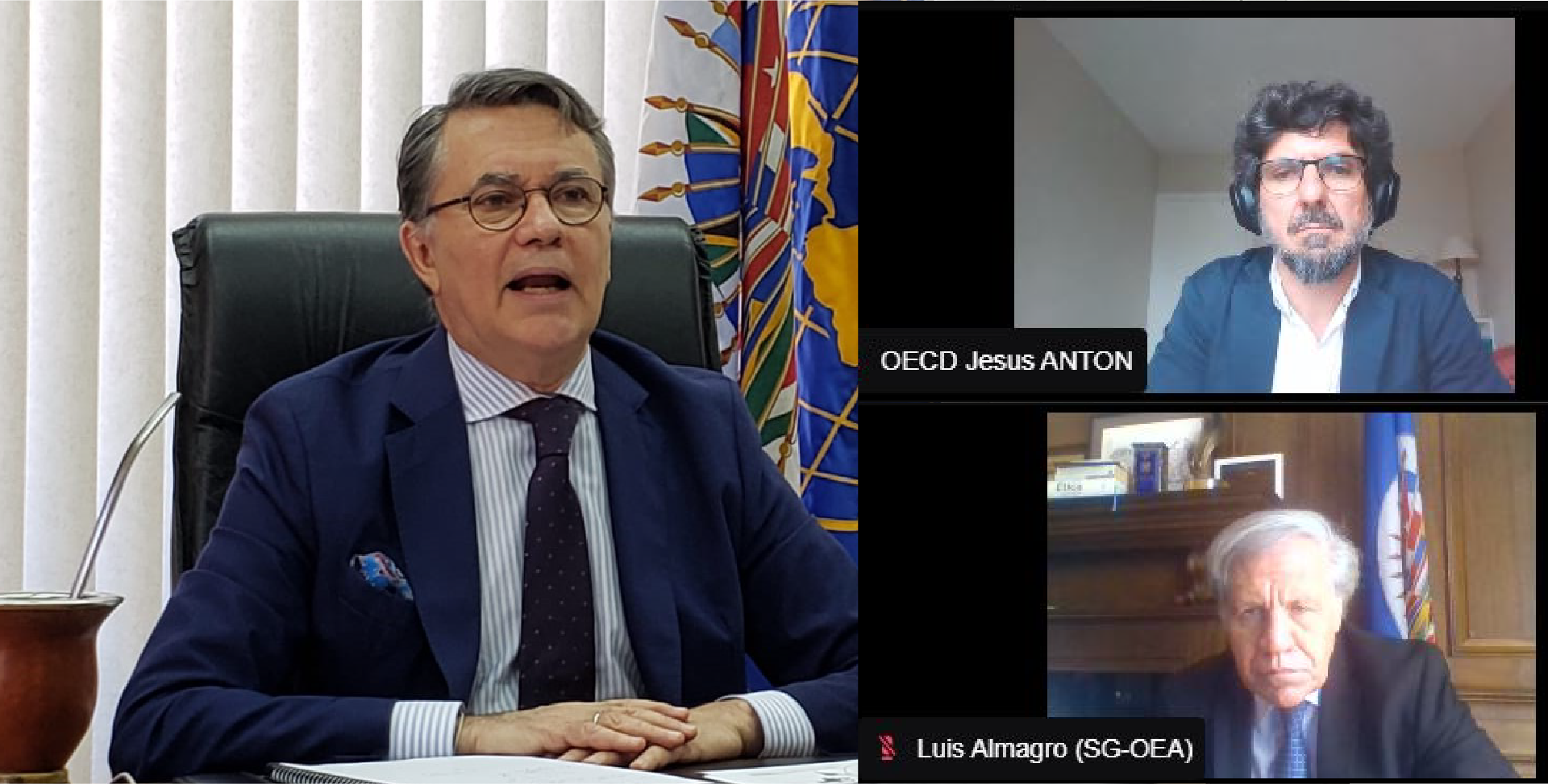Manuel Otero, Director General of the Inter-American Institute for Cooperation on Agriculture (IICA), stressed the need to devise agendas that promote greater production efficiency and an uninterrupted flow of trade.

San Jose, 19 June 2020 (IICA) – Representatives from multilateral organizations were convened to a meeting of the Summit Working Group of the Organization of American States (OAS), in which they analyzed the main repercussions of the global health crisis on the agrifood chain and the measures applied by countries to bridge the ever increasing gaps.
Addressing the virtual meeting, the Director General of the Inter-American Institute for Cooperation on Agriculture (IICA), Manuel Otero, spoke about the impact of Covid-19 on food security, value chains and intraregional trade.
The virtual discussion provided an overview of the food security situation in the countries of Latin America and the Caribbean and their strategies to tackle the crisis.
Otero highlighted difficulties in the functioning of international supply chains; barriers and restrictions on the international trade of goods; collapses and closures of major buyers of agricultural products or food; and reduced international demand for products such as sugar, corn, soybean and palm oil.
He warned that, “These situations provide an ideal breeding ground to compound already existing vulnerabilities in the region’s food and nutritional security”.
Another conclusion arising from the meeting was that a situation could arise in which various countries would become more dependent on food imports, while also facing greater unemployment, poverty, hunger and malnutrition.
Special mention was made of the excessive food vulnerability of the Caribbean countries, particularly, Haiti and Venezuela.
A United Front
All Latin American and Caribbean countries have responded to the pandemic by instituting various mechanisms and policy instruments, the vast majority of which focus on addressing the emergency.
IICA’s Director General felt that, “These responses have weakened the macroeconomy and that is an issue that must be taken into account due to its possible impact on inflation and the other negative consequences that could arise. During the reactivation process, agriculture is the economic sector that has the most linkages with the rest of the economy.
Otero also remarked that in order for agriculture to occupy the leading role that it is called on to play in this new post-Covid-19 era, countries must build a new institutional framework for the sector; introduce greater innovation and digitalization; promote openness and the free flow of international trade, while also fostering regional integration, short circuits and domestic food supplies.
Fabrizio Opertti, Manager of the Integration and Trade Sector at the Inter-American Development Bank (IDB), agreed with Otero that the region should foster trade short- circuits and regional trade at affordable prices.
The online meeting was chaired by Luis Almagro, Secretary General of the OAS, with the participation of representatives from the IDB, the Pan American Health Organization (PAHO), the International Monetary Fund (IMF) and the Organization for Economic Co-operation and Development (OECD), among others.
More information:
Institutional Communication Division
comunicacion.institucional@iica.int











